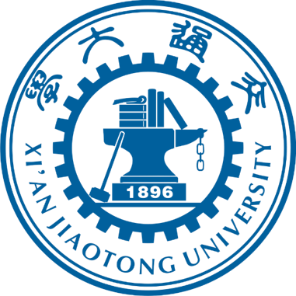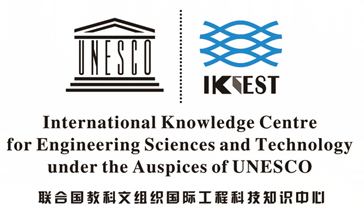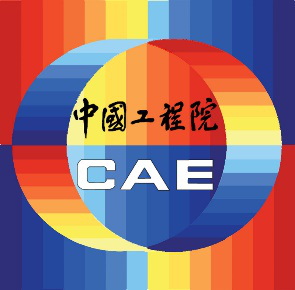INTERNATIONAL KNOWLEDGE CENTRE FOR ENGINEERING SCIENCES AND TECHNOLOGY UNDER THE AUSPICES OF UNESCO
(IKCEST)
The International Knowledge Centre for Engineering Sciences and Technology (shortened as “IKCEST”) is a category 2 centre under the auspices of the United Nations Educational, Scientific and Cultural Organization (shortened as “UNESCO”). IKCEST was established on June 2, 2014. The Chinese Academy of Engineering is responsible for the operation and management of the IKCEST.
IKCEST is a comprehensive and international knowledge centre devoted to the engineering sciences, technology and applied technology. IKCEST aims at connecting engineering sciences and technology institutions globally, assembling various digital resources relating to engineering sciences and technology, building up a public data service platform and corresponding service environment, and coordinating the building of various professional knowledge systems, thus providing knowledge-based services at a global scale in the form of consultancies, scientific research and education for policy-makers and engineering science and technology professionals in the world, with particular reference to the developing countries.
The specific tasks and functions of IKCEST are as follows: to establish an international engineering and technology resources hub; to establish a public data service platform, and to develop the technology for mining and analyzing knowledge from big data; to cooperatively build professional knowledge service systems, and to build capacity in developing countries; to foster interdisciplinary engineering talents with big data processing ability; and to assist UNESCO to fulfill its aims and support its action plans.
CHINESE ACADEMY OF ENGINEERING
The Chinese Academy of Engineering (CAE) is a national and independent organization composed of elected members with the highest honor in the community of engineering and technological sciences of the nation. Its missions are to initiate and conduct strategic studies, provide consultancy services for decision-making of nation’s key issues in engineering and technological sciences and promote the development of the undertaking of engineering and technological sciences in China and devote itself to the benefit and welfare of the society.
INTERNATIONAL SCIENCE, TECHNOLOGY AND INNOVATION CENTRE FOR SOUTH-SOUTH COOPERATION UNDER THE AUSPICES OF UNESCO
(ISTIC)
The creation of the International Science, Technology and Innovation, Centre for South-South Cooperation under the auspices of UNESCO (ISTIC) is a follow up of the Doha Plan of Action which has been adopted by the head of States and Government of the Group of 77 and China, during the meeting in Doha, Qatar, from 12-16 June 2005 on the occasion of the Second South Summit of the Group of 77. The Summit urged UNESCO to develop and implement a programme for South-South cooperation in science and technology with the objective of facilitating the integration of a developmental approach into national science and technology and innovation policies, capacity building in science and technology through providing policy advice and exchange of experience and best practices, and creating a problem solving network of centres of excellence in developing countries as well as supporting the exchange of students, researchers, scientists and technologists among developing countries. ISTIC will act as an international platform for South-South cooperation in science, technology and innovation and make use of the network of the G77 plus China and the Organization of the Islamic Conference (OIC). The overall goal of ISTIC is to increase the capacity for management of science, technology and innovation throughout developing countries.
 |
XI’AN JIAOTONG UNIVIERSITY
Xi'an Jiaotong University (XJTU) is a key university under the direct administration of the Ministry of Education of China and is one of the oldest universitiesin China. The predecessor of Xi'an Jiaotong University was Nanyang College, which was founded in 1896 in Shanghai and renamed Jiaotong University in 1921. In 1956, the main part of Jiaotong University was relocated to Xi'an according to the decision of the State Council, and this relocated part of JiaotongUniversity was later officially renamed Xi'an Jiaotong University in 1959. In 2000, approved by the State Council, the former Xi'an Medical University and former Shaanxi Institute of Finance and Economics were merged with Xi'an Jiaotong University. XJTU, as one of the first batch of the universities in China, was supported by the central Government at the seventh and eighth five-year plan, as well as China's “Project 211” and “Project 985” to develop into a world-class university. Now, Xi’an Jiaotong University is on the List of World-class Universities and First-class Disciplines (abbreviated as “Double First-class”) released in 2017 by the Ministry of Education of China, as a Double First-class universityin Category A, which means that the government will support it financially to develop into a world-class university, and its eight disciplines into the first-class level in the world.
Original Text (This is the original text for your reference.)
INTERNATIONAL KNOWLEDGE CENTRE FOR ENGINEERING SCIENCES AND TECHNOLOGY UNDER THE AUSPICES OF UNESCO
(IKCEST)
The International Knowledge Centre for Engineering Sciences and Technology (shortened as “IKCEST”) is a category 2 centre under the auspices of the United Nations Educational, Scientific and Cultural Organization (shortened as “UNESCO”). IKCEST was established on June 2, 2014. The Chinese Academy of Engineering is responsible for the operation and management of the IKCEST.
IKCEST is a comprehensive and international knowledge centre devoted to the engineering sciences, technology and applied technology. IKCEST aims at connecting engineering sciences and technology institutions globally, assembling various digital resources relating to engineering sciences and technology, building up a public data service platform and corresponding service environment, and coordinating the building of various professional knowledge systems, thus providing knowledge-based services at a global scale in the form of consultancies, scientific research and education for policy-makers and engineering science and technology professionals in the world, with particular reference to the developing countries.
The specific tasks and functions of IKCEST are as follows: to establish an international engineering and technology resources hub; to establish a public data service platform, and to develop the technology for mining and analyzing knowledge from big data; to cooperatively build professional knowledge service systems, and to build capacity in developing countries; to foster interdisciplinary engineering talents with big data processing ability; and to assist UNESCO to fulfill its aims and support its action plans.
CHINESE ACADEMY OF ENGINEERING
The Chinese Academy of Engineering (CAE) is a national and independent organization composed of elected members with the highest honor in the community of engineering and technological sciences of the nation. Its missions are to initiate and conduct strategic studies, provide consultancy services for decision-making of nation’s key issues in engineering and technological sciences and promote the development of the undertaking of engineering and technological sciences in China and devote itself to the benefit and welfare of the society.
INTERNATIONAL SCIENCE, TECHNOLOGY AND INNOVATION CENTRE FOR SOUTH-SOUTH COOPERATION UNDER THE AUSPICES OF UNESCO
(ISTIC)
The creation of the International Science, Technology and Innovation, Centre for South-South Cooperation under the auspices of UNESCO (ISTIC) is a follow up of the Doha Plan of Action which has been adopted by the head of States and Government of the Group of 77 and China, during the meeting in Doha, Qatar, from 12-16 June 2005 on the occasion of the Second South Summit of the Group of 77. The Summit urged UNESCO to develop and implement a programme for South-South cooperation in science and technology with the objective of facilitating the integration of a developmental approach into national science and technology and innovation policies, capacity building in science and technology through providing policy advice and exchange of experience and best practices, and creating a problem solving network of centres of excellence in developing countries as well as supporting the exchange of students, researchers, scientists and technologists among developing countries. ISTIC will act as an international platform for South-South cooperation in science, technology and innovation and make use of the network of the G77 plus China and the Organization of the Islamic Conference (OIC). The overall goal of ISTIC is to increase the capacity for management of science, technology and innovation throughout developing countries.
 |
XI’AN JIAOTONG UNIVIERSITY
Xi'an Jiaotong University (XJTU) is a key university under the direct administration of the Ministry of Education of China and is one of the oldest universitiesin China. The predecessor of Xi'an Jiaotong University was Nanyang College, which was founded in 1896 in Shanghai and renamed Jiaotong University in 1921. In 1956, the main part of Jiaotong University was relocated to Xi'an according to the decision of the State Council, and this relocated part of JiaotongUniversity was later officially renamed Xi'an Jiaotong University in 1959. In 2000, approved by the State Council, the former Xi'an Medical University and former Shaanxi Institute of Finance and Economics were merged with Xi'an Jiaotong University. XJTU, as one of the first batch of the universities in China, was supported by the central Government at the seventh and eighth five-year plan, as well as China's “Project 211” and “Project 985” to develop into a world-class university. Now, Xi’an Jiaotong University is on the List of World-class Universities and First-class Disciplines (abbreviated as “Double First-class”) released in 2017 by the Ministry of Education of China, as a Double First-class universityin Category A, which means that the government will support it financially to develop into a world-class university, and its eight disciplines into the first-class level in the world.












 User Center
User Center My Training Class
My Training Class Feedback
Feedback












Comments
Something to say?
Login or Sign up for free